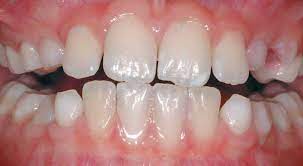A recent study identified bacteria as the association between brushing teeth and Dementia. According to an article by The Ladders, brushing teeth regularly might not be as helpful as we thought.
The new research was published in the Alzheimer’s & Dementia: Diagnosis Assessment & Disease Monitoring journal. It specified that an abundance of a certain bacteria in the mouth could lead to Dementia later in life.
Bacteria under the gum
Specifically, the research says that the subgivingal periodontal bacteria define the microbes found under the gum. These bacteria also increase the risk of age-related Dementia.
The researchers also found a strong relationship between its presence and the creation of proteins associated with Alzheimer’s disease in the brain. Harmful bacteria identified also included Fretibacterium, Porphyromonas, and Prevotella.
According to the authors, this is the first study linking subgingival periodontal bacteria and CSF biomarkers. The authors also discovered that the subgingival periodontal dysbiosis is described by rises in periodontal-associated microbes and declines in health-linked bacteria, also associated with declined CSF Aβ42.
The researchers further expressed the importance of the microbiome in general, not just the harmful microbes. Good bacteria and modulating amyloid levels play an equally important role in the study.
There were 48 participants involved in the study who were all above 65 with no history of cognitive disorder. Each of the subjects had their CSF levels quantified and then had microbial samples taken from under their gums.
The researchers also wrote all imaging, medical, CSF collection, neuropsychological and dental exams. All imaging was standardized.
A single trained periodontist conducted all periodontal exams blind to CSF. Follow-up evaluation revealed that participants with higher amyloid levels were more likely to have a bacteria imbalance under the gums. It was, therefore, less about the hazardous bacteria and more about their imbalance.
Complicated mechanisms
According to study authors, such mechanisms where brain amyloid levels increase and can be linked to Alzheimer’s are complicated. They are also multifaceted and understood only to a certain degree. However, it should be considered that upwards of 40% of the study participants carried a gene expression linked to Alzheimer’s.


